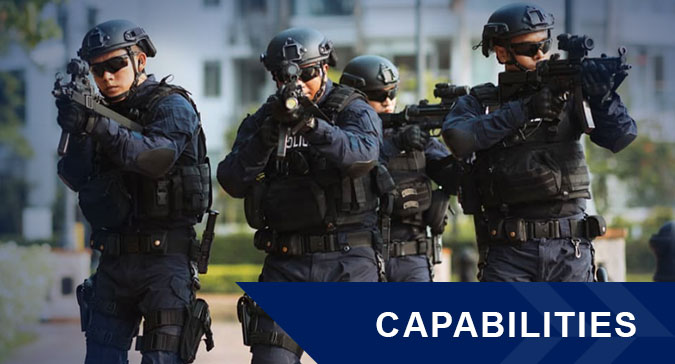How the SPF contributes to the fight against cybercrime through transnational collaborations.
By: DSP Gan Seng Tark

In the fast-evolving digital age, crime has taken on a new dimension. While Information and Communication Technologies (ICT) have brought the world closer together, they have also provided a fertile ground for criminals to exploit vulnerabilities across borders.
The Singapore Police Force (SPF) CyberCrime Command within the CID was established in June 2015 to build up our anti-cybercrime capabilities, with a focus on cyber investigation, digital forensics and cybercrime policy. Within the CyberCrime Command, TCPB of the Technology Crime Division is responsible for conceptualising policies related to cybercrime investigation and forensics.
As a TCPB Policy Officer, I review legislation and policy matters related to cybercrime. I also work closely with international partners through regional platforms such as the ASEAN Senior Officials Meeting on Transnational Crime Working Group on Cybercrime and international platforms such as the United Nations Office on Drugs and Crime (UNODC).
A Unified Approach Against Cybercrime
Recognising the pressing need for a unified approach to combat cybercrime, the UNODC General Assembly adopted resolution 75/282, known as “Countering the use of ICTs for criminal purposes.” It outlines that the Ad Hoc Committee (AHC), comprising representatives from UN member-states and other relevant stakeholders, would hold at least six negotiating sessions and a concluding session to adopt a draft convention on cybercrime.
The convention provides a comprehensive legal framework for preventing and combating crimes that use ICTs. The convention also addresses issues related to digital evidence, international cooperation and capacity-building for law enforcement and other relevant authorities. The AHC aims to provide the draft convention to the General Assembly at its 78th session, slated to take place before September 2024.
Contributing to International Negotiations
The SPF has been involved in the negotiations since the first AHC session convened in 2021. We work closely with colleagues from the Ministry of Home Affairs (MHA) to shape Singapore’s intervention during these negotiation sessions, including on articles related to international cooperation.

The intervention voices our support for the draft text of the convention (or alternative formulations suggested by other countries) and allows us to raise our own formulation of the text.
An Enriching Experience
After attending the first four sessions virtually with colleagues from MHA, the Ministry of Foreign Affairs and the Attorney-General’s Chambers, I was honoured to attend the fifth and sixth AHC sessions in person.

My role was to provide real-time support to the Singapore delegation, especially on matters related to the operational feasibility of the proposed cybercrime convention.
The negotiation process highlighted the complexities of harmonising international laws and policies to combat cybercrime effectively. Balancing the priorities of different countries also underscores the importance of cross-border cooperation in addressing cybercrime.

Supporting the Fight Against Cybercrime and Raising Public Awareness
Furthering international cooperation is just one way in which we can address the global threat posed by cybercrime. In addition to taking tough enforcement action on offenders, the SPF also works with local partners to raise public awareness as well as build capability and capacity to fight against cybercrime.

One of our latest initiatives is the launch of the ransomware portal. Developed in collaboration with the Cyber Security Agency of Singapore, this one-stop portal provides aid to ransomware victims seeking recovery support and provides organisations with access to ransomware-related resources.
The portal also complements the goals of the proposed global cybercrime convention to develop support programmes for the victims of ICT offences. Check out the ransomware portal for more information!









